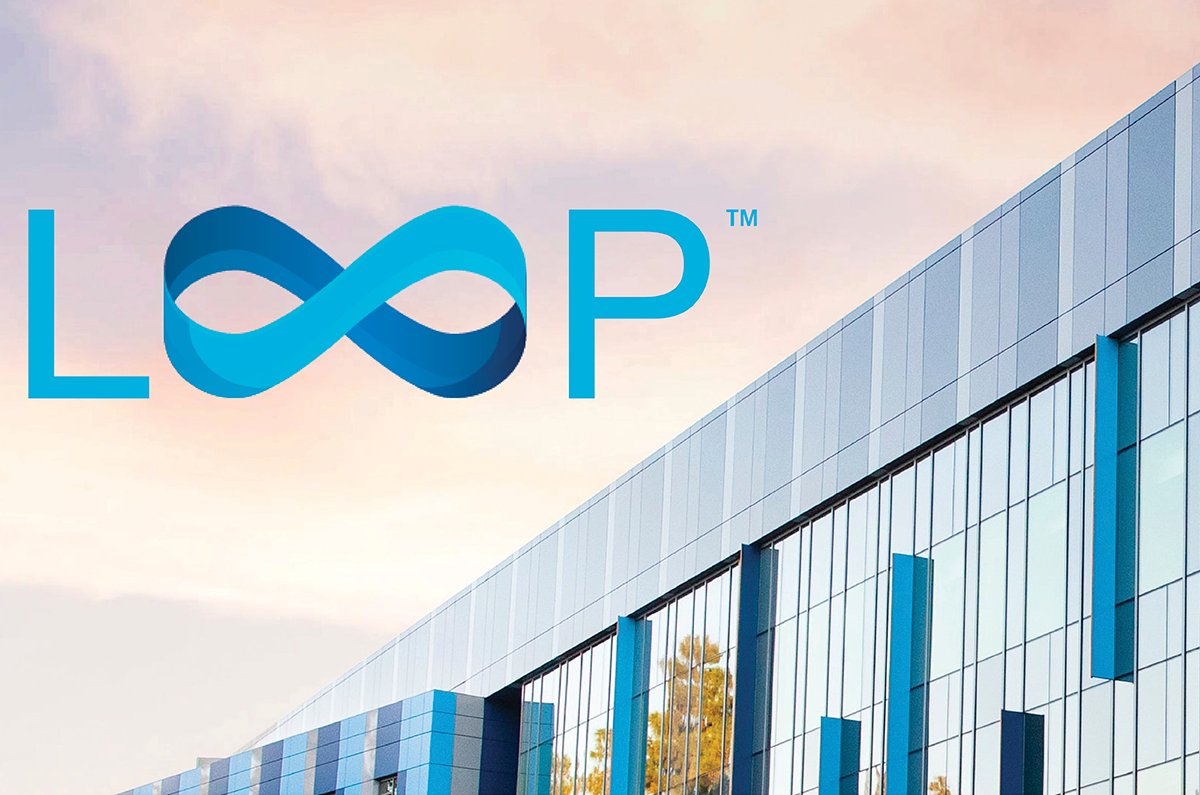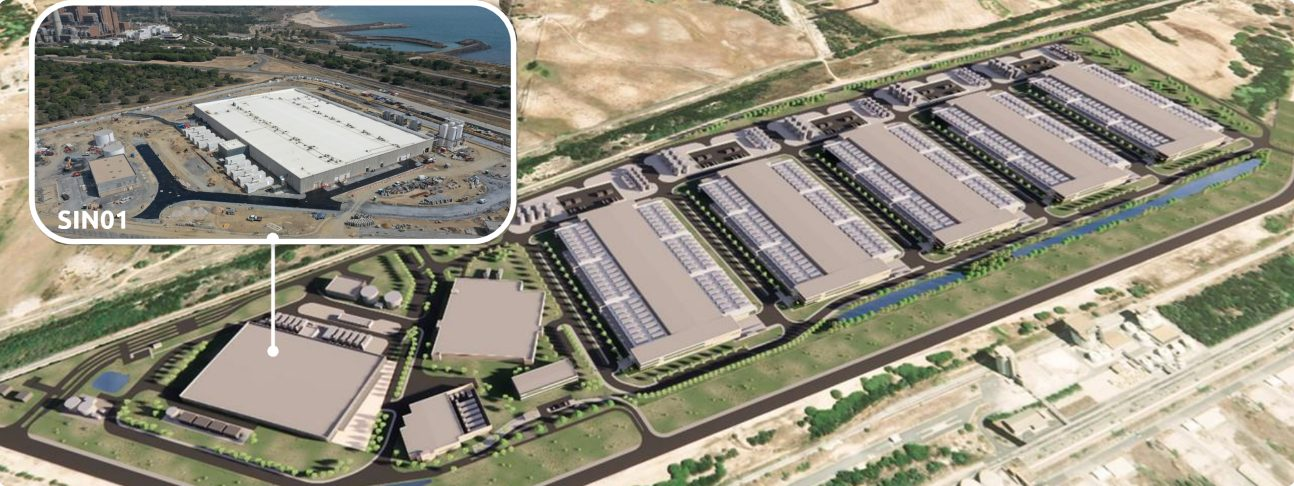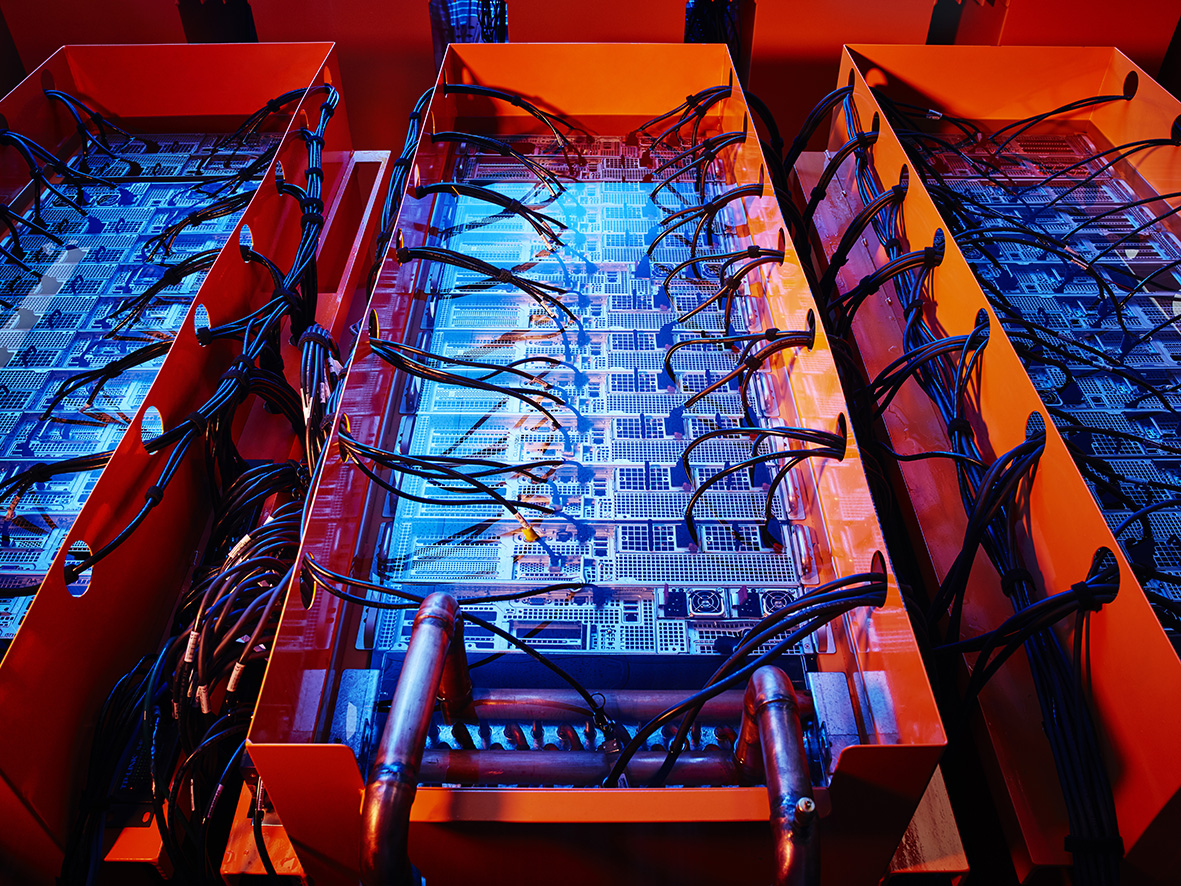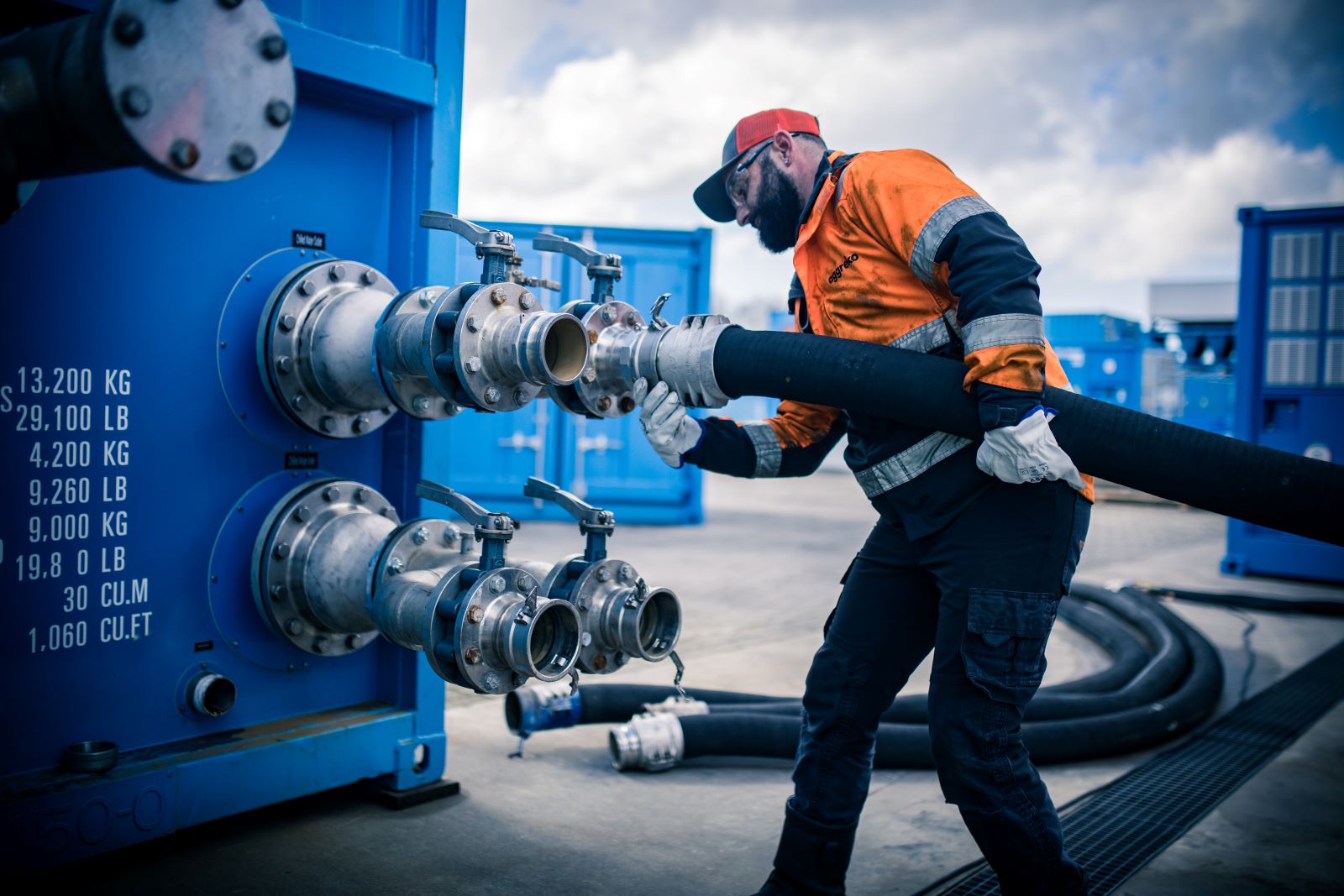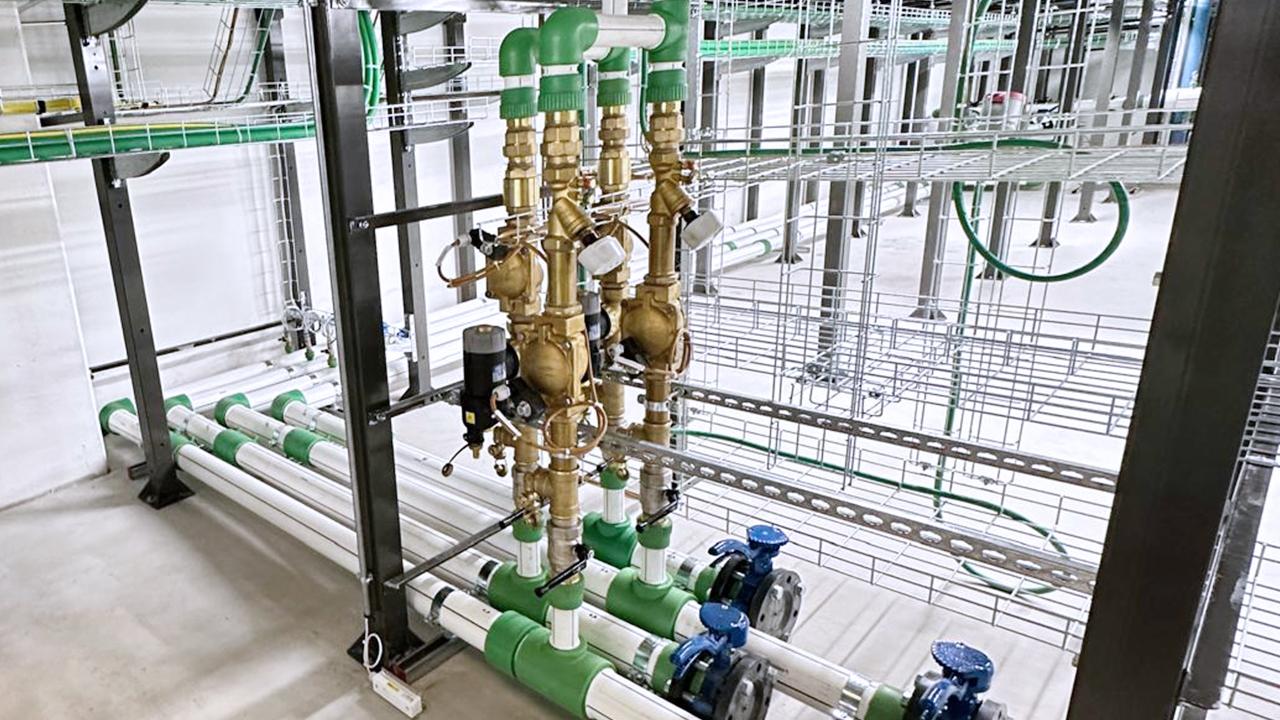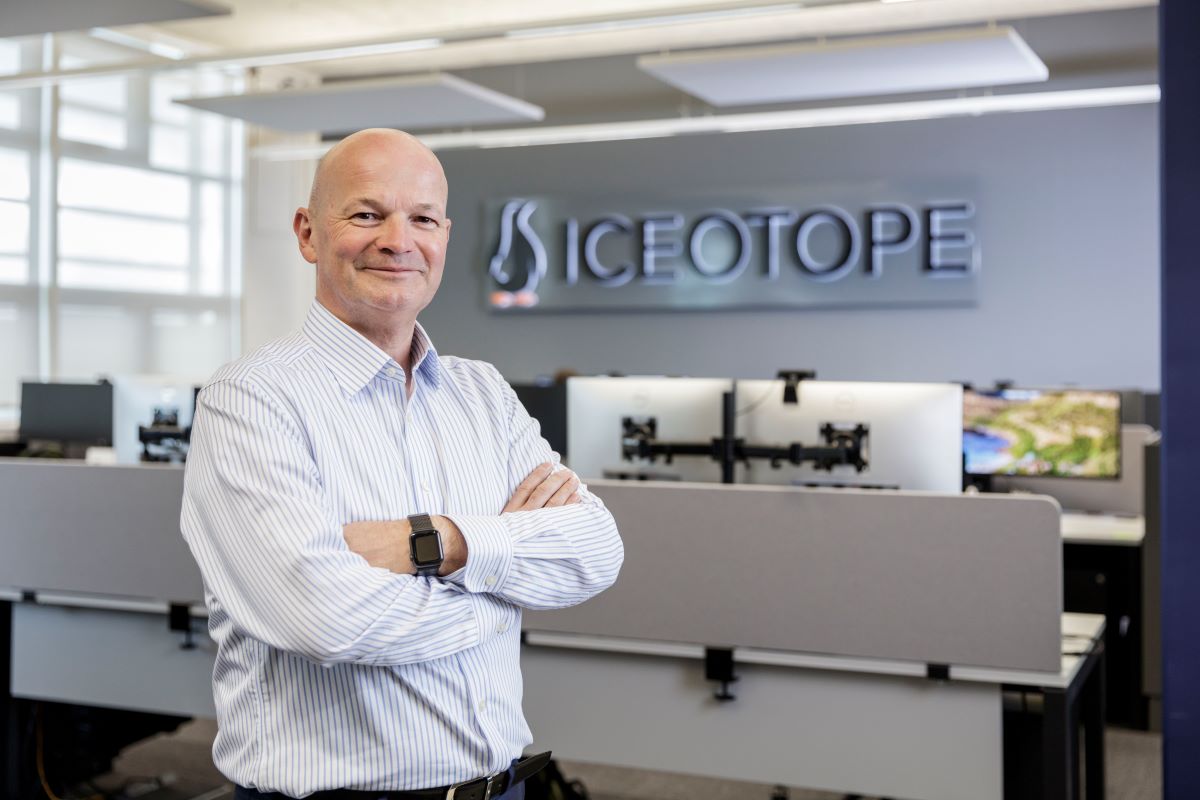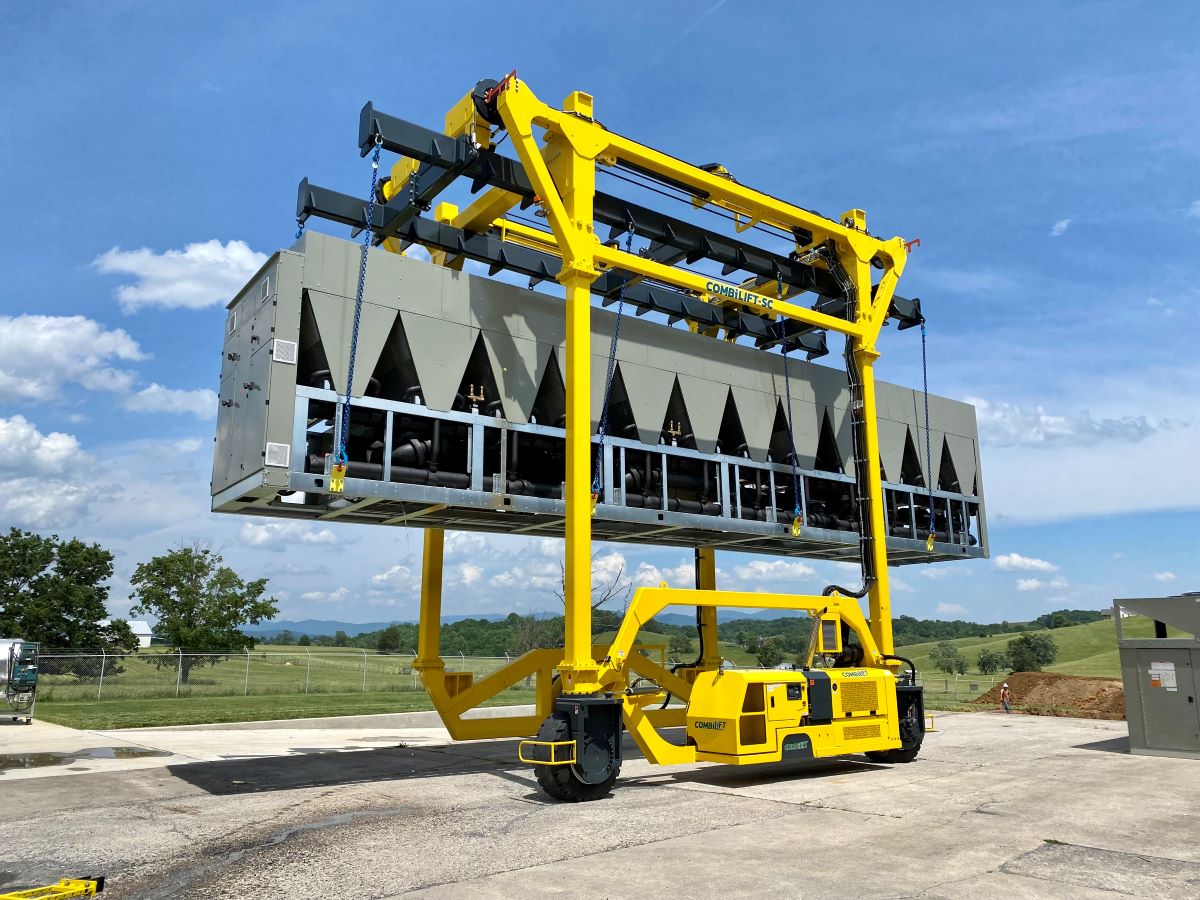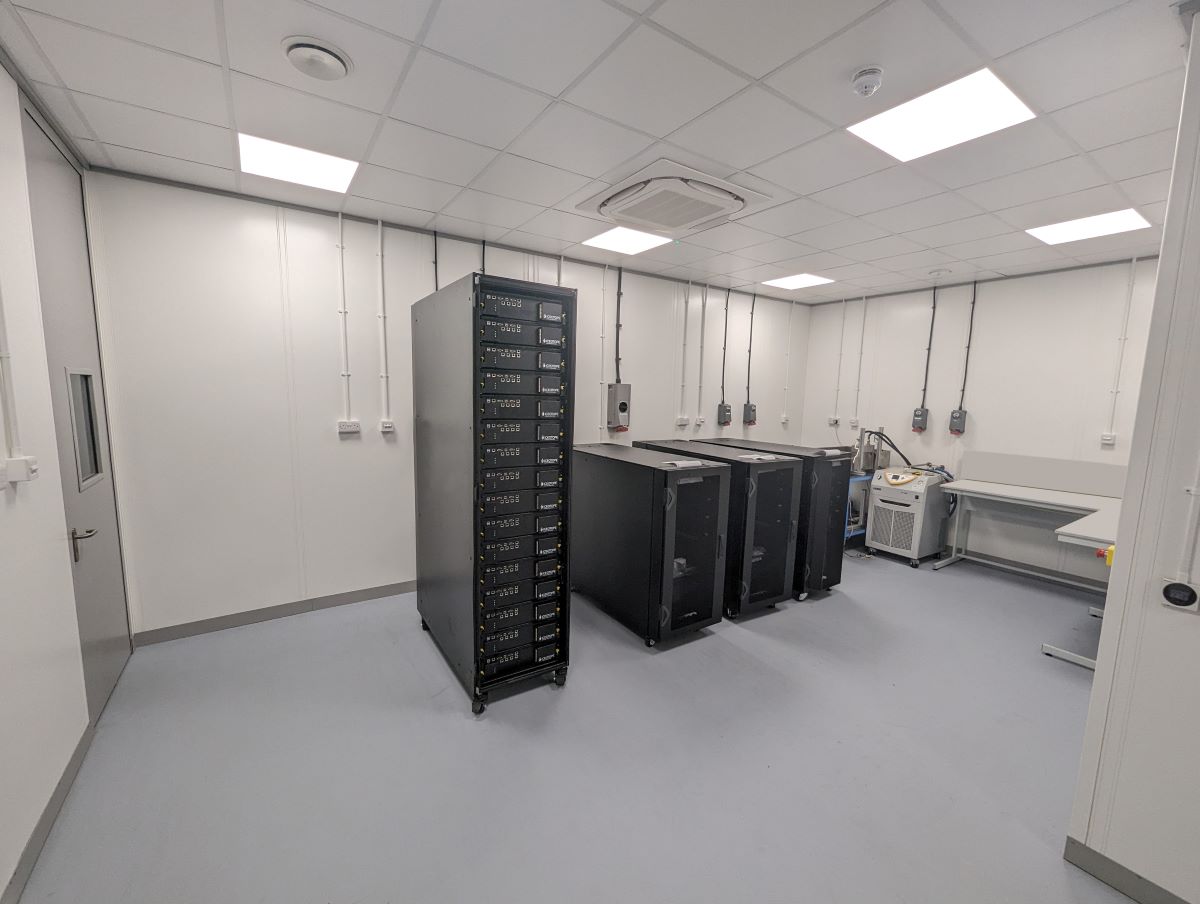Cooling
Colocation
Cooling
Data Centres
News
STT GDC and Phaidra to optimise data centre cooling with AI
ST Telemedia Global Data Centres (STT GDC), one of the world’s fastest-growing data centre colocation services providers, today announced its collaboration with Phaidra, a pioneer of using artificial intelligence (AI) to improve efficiency, stability, and sustainability, to pilot an AI-based autonomous control system for optimising data centre cooling in STT GDC’s facilities in Singapore.
Phaidra provides AI-powered control systems for data centres. Its autonomous AI agents build upon legacy control systems and support facility operations teams by analysing thousands of sensor trends in real-time to maximise energy efficiency, reliability, and cooling performance using specialised deep learning models.
Because this is a closed-loop solution, these AI agents continuously learn and adapt to changing facility conditions, such as load variations, due to higher density GPU deployments or external weather changes.
STT GDC’s commitment to be carbon neutral by 2030, along with its collaboration with Phaidra, aligns with Singapore’s vision of a greener future for the data centre industry. As the power needs of AI workloads continue to grow, data centre cooling and operational infrastructure must evolve to keep pace. This evolution is essential to more effectively and sustainably manage the heat generated by the high-performance computing requirements necessary to support accelerated computing workloads such as AI and beyond.
STT GDC will be the first operator to pilot Phaidra’s AI-powered control systems in Asia, setting a unique precedent by testing them in a hybrid cooling environment that is technically more challenging as compared to traditional air-cooled data centres. Selected STT GDC data centres offer a combination of both air-cooling and liquid-cooling solutions, supporting diverse computing workloads within the same facility. This pioneering effort underscores STT GDC’s commitment to innovative and sustainable data centre management. Based on existing site parameters, an initial estimate of 10% in cooling energy savings is anticipated. As the AI model is fed more operational data, energy savings are expected to increase from the 10% baseline to as high as 30%. This flagship pilot will serve as a model for possible subsequent deployments across STT GDC’s portfolio of data centres globally.
Daniel Pointon, Group Chief Technology Officer, ST Telemedia Global Data Centres, comments, “Combining our expertise in delivering AI-ready data centres across major economic hubs with Phaidra’s industry-leading know-how in using AI to optimise mission-critical control systems, we are leading the way in using AI to further drive sustainability within our data centres. Through this collaboration, we are not only seeing meaningful impact on our ongoing decarbonisation efforts, but also significant efficiency gains in data centre operations that already offer a hybrid of both air and liquid cooling. This pilot is testament to our commitment to drive sustainable innovation across our data centres.”
Jim Gao, CEO and Co-Founder of Phaidra, adds, “Phaidra is proud to work with a leading data centre services provider like STT GDC. Its culture of operational excellence, relentless improvement and innovation makes for a natural partnership. We look forward to driving the data centre industry forward together.”
AI is already making inroads towards transforming the global economy. Analysis from PWC indicates that AI could potentially contribute up to $15.7 trillion to the global economy by 2030, along with up to 26% boost in GDP for local economies from AI by the same year. While a sufficient level of AI-readiness is required to take advantage of these economic opportunities, there also must be considerations towards doing so in a sustainable manner.
As a leading data centre hub both regionally and internationally, Singapore is uniquely positioned to drive sustainable innovation in the data centre space. Recently, Singapore announced its Green Data Centre Roadmap for sustainable growth, with plans to accelerate data centres’ energy efficiency at both hardware and software levels, as well as to increase data centres’ use of green energy to expand capacity.
For more from STT GDC, click here.
Simon Rowley - 27 August 2024
Cooling
Data Centres
News
BAC unveils Loop Platform for enhanced cooling
Baltimore Aircoil Company (BAC), a global provider of cooling equipment, has announced the launch of its innovative AI-driven Loop Platform.
BAC claims that the platform, which is designed to enhance the efficiency and performance of HVAC systems, marks a significant advancement in cooling systems management.
Loop is an advanced AI platform that seamlessly integrates with existing cooling tower systems. This compact yet powerful device is engineered to optimise operational efficiency by continuously monitoring and adjusting for environmental conditions. Its AI algorithms analyse data in real-time, ensure optimal performance and enable predictive maintenance. The result is significant energy savings, reduced maintenance costs, and extended equipment lifespan.
This platform is tailored for end users, including building and facility owners, managers, and maintenance professionals. The Loop Platform is designed to operate as an easy-to-use solution that not only improves system reliability, but also contributes to sustainability goals by reducing energy consumption. Maintenance professionals will appreciate the platform's ability to predict potential issues before they escalate, streamlining maintenance schedules and minimising unexpected downtime.
"BAC is excited to introduce the Loop Platform, a product that embodies our commitment to innovation and sustainability," says Adam Bee, Vice President of Business Development at Baltimore Aircoil Company. "We understand the challenges faced by building owners and facility managers in maintaining efficient cooling systems. Loop offers a smart, user-friendly solution that simplifies these tasks while delivering measurable savings."
For more from BAC, click here.
Simon Rowley - 22 August 2024
Colocation
Cooling
Data Centres
News
SINES DC becomes Europe's largest data centre campus
Start Campus, a company focused on designing, building and operating a new generation of sustainable data centres, has announced the award of additional power by REN, the Portuguese transmission system operator.
This expanded power allocation brings the total IT capacity secured for SINES DC to 1.2 GW, an increase on the initial 495 MW, making it the largest colocation site in Europe with fully secured grid power.
SINES DC, which has land secured for the full campus, uses seawater cooling to minimise its environmental impact and improve efficiency. This unique offering enables Start Campus to deliver large scale, AI-ready and sustainable data centre solutions.
The campus, located south of Lisbon and comprising six buildings (SIN01-06), will be developed incrementally until 2030:
• SIN01: the first building with an initial 14 MW of IT capacity is set to be operational by Q4 2024. In direct response to the requirements of its customers and, through the use of liquid cooling technologies, its capacity is being expanded to 26 MW.
• SIN02-06: each subsequent building will support up to 240 MW of IT capacity and will be constructed sequentially, with SIN02 ready for service from 2026. All buildings are expected to be operational by 2030.
Rob Dunn, Chief Executive Officer of Start Campus, says, “Securing this additional grid capacity marks a significant milestone for Start Campus. The scale of SINES DC, coupled with our unique seawater cooling solution, creates an unprecedented offering that sets new standards for the industry. I am proud to deliver a solution that sustainably meets the evolving needs of our customers.”
This power allocation follows the commitment by REN to make significant investments to extend and develop the transmission network in the high-demand area of Sines. Throughout its phased development, Start Campus continues to support the development of the Sines region and will contribute to renewable energy developments in Portugal.
For more from Start Campus, click here.
Simon Rowley - 8 August 2024
Cooling
Data Centres
News
Uncategorised
BAC secures rights to DUG's immersion cooling technology
Baltimore Aircoil Company (BAC), a provider of data centre cooling solutions, has announced an exclusive worldwide licensing agreement with DUG Technology. This strategic partnership grants BAC exclusive rights to DUG's proven and patented immersion-cooling technology designed for high-density data centres.
BAC tells us that the needs of its data centre customers are rapidly changing, and that cooling technologies are evolving to handle the increased heat loads associated with AI and machine learning. Cooling challenges include the need for more power, more floor space, increased cooling equipment complexity, and higher operating costs. DUG’s innovative solution allows data centre operators to achieve higher compute densities at world-class energy efficiency levels within the same space. This development is thus able to transform data centre infrastructure designs with lower energy usage and carbon impact.
By integrating DUG's immersion-cooling technology, BAC expands its portfolio of evaporative, hybrid, and dry cooling products to include indoor immersion cooling solutions to provide data centre customers with even more advanced options to meet their future cooling needs.
"This partnership with DUG represents a significant milestone for BAC," says Don Fetzer, President of BAC. "By incorporating DUG's advanced immersion-cooling technology, we are taking a major step forward in providing sustainable, next-generation cooling solutions for data centres. Our combined expertise along with our global manufacturing footprint ensures that we continue to lead the way in addressing the challenges of high-density computing, in line with our vision of reinventing cooling to sustain the world."
Matt Lamont, DUG's Managing Director, adds, "This new partnership between BAC and DUG is poised to revolutionise the data centre cooling market. Our patented DUG Cool design has been refined through production use for over a decade. Our Skybox data centre in Houston is among the largest single-phase immersion-cooling deployments in the world. This agreement will pair our design, know-how, and reputation with BAC's scale, manufacturing prowess, and respected brand to position us to take advantage of a shifting and rapidly expanding data centre cooling market. We very much look forward to working with BAC as part of this agreement."
Simon Rowley - 8 August 2024
Cooling
Data Centres
News
Product
Aggreko invests in cooling fleet to support data centres
Energy solutions specialist, Aggreko, has significantly invested in its European fleet of cooling solutions to bring reliable, clean and efficient cooling to the market.
As weather forecasts predict warmer than normal temperatures for the continent this summer, companies across Europe will require HVAC solutions to maintain operations on site while keeping energy consumption to a minimum.
Specifically, Aggreko has grown its fleet of chillers to support data centres with the most efficient short and long-term solutions to maintain critical operations, assist during emergency scenarios and support with increasing capacity.
Growing its expertise in HVAC, the company is expanding its fleet to make greener cooling provision both for production processes and cooling applications. Complementing its existing range of industrial HVAC solutions and wider Greener Upgrades portfolio, Aggreko is introducing two new cooling product ranges.
Its new very low temperature chiller, the VLTC550, uses CO2 (R774) refrigerant with a global warming potential (GWP) equal to one, and provides stable and exceptionally efficient cooling. The containerised unit is capable of achieving 220 kW of cooling at -40°C in a condensed 10ft footprint.
As companies are under pressure to use low GWP refrigerants, Aggreko is able to help companies accelerate the transition with this new fleet. To further support the transition to more environmentally friendly refrigerants, the company is switching all screw chillers in its fleet to R513A, significantly reducing the GWP of Aggreko’s fleet of industrial chillers by almost 60%.
For larger scale cooling requirements, Aggreko has also introduced a new range of water-cooled chillers which delivers 1.5 MW of cooling and uses R513A refrigerant. Designed to meet the needs of data centres, manufacturing, petrochemicals, food and beverage, and mining sectors, the modular and scalable water-cooling solution provides advanced control capabilities to ensure optimal performance and efficiency.
Danny Quinn, Head of HVAC and Compressed Air Product Lines at Aggreko, comments, “Supplementary cooling solutions are important for any data centre operators looking to maintain smooth operations while balancing cost and environmental impact. We have invested in our European fleet of temperature control equipment so that we can provide the most efficient solutions that meet all regulatory requirements for customers, which can be implemented quickly on their site. Our expert teams can ensure the correct level of equipment is selected, with no project too complex.”
Further enhancing the environmental credentials of its cooling solutions, Aggreko has also recently invested significantly in its portfolio of Greener Upgrades to efficiently and sustainably power the chillers. This includes incorporating Stage V generators, greener fuels and Battery Energy Storage Systems to enhance efficiency, reduce fuel use and carbon footprint.
By investing in its Greener Upgrades, Aggreko is aiming to make efficient and clean technologies more accessible to customers, in addition to the skills and expertise required to correctly implement them – a fundamental part of the company’s sustainability framework, Energising Change. By providing turnkey cooling solutions, Aggreko can ensure that customers across Europe are able to prioritise resilience and uptime on site while keeping operational costs under control and emissions to a minimum.
Danny adds, “Ensuring our customers can make progress with their sustainability strategies while balancing costs and resilience is something we remain committed to. As we come into key seasons for temperature control, we are making sure we are equipped with a strong fleet and the right people to implement solutions to make this a reality.”
For more from Aggreko, click here.
Simon Rowley - 7 August 2024
Cooling
Data Centres
News
Aruba activates liquid cooling in Ponte San Pietro data centre
Aruba, an Italian provider of cloud and data centre services, has announced the implementation of liquid cooling within the data centre campus in Ponte San Pietro (BG), near Milan.
Liquid cooling enables the support of increasingly dense racks in data centres and meets the needs of new generations of processors. This type of technology is intended to support specialised hardware of public and private customers with specific needs in AI or high-performance computing (HPC); applications that require high processing intensity.
“By establishing one of the first spaces equipped to accommodate liquid-cooled cabinets, Aruba is one of few industry players ready to provide the next generation of machines designed for artificial intelligence and high-performance computing," comments Giancarlo Giacomello, Head of Data Centre Offering.
“This type of solution responds to the growing needs of the market that require an increase in computing density and power, offering full compatibility with next-generation systems. Integrating liquid cooling solutions into our infrastructures is part of Aruba's innovation strategy, based on the desire to explore and support all initiatives that allow us to offer customers the highest quality, performance and environmentally sustainable solutions. To do so, we design and maintain our data centres at the forefront of technology, ready to face future challenges.”
Strengths of liquid cooling include:• Higher thermal efficiency: liquids have a higher heat transfer capacity than air, allowing adequate thermal dissipation for each rack even above certain density thresholds.• Energy efficiency: in high-density infrastructure, this type of cooling proves more efficient than traditional air systems.• Higher computing density: liquid cooling supports processors and GPUs with high thermal requirements and can handle higher power densities.
Thanks to the design of Aruba's data centres, the liquid cooling solution was integrated into an environment already in production without needing to dedicate a separate space or portion of the facilities to liquid cooling. This greatly reduced implementation time since all data rooms had already been prepared for applications involving liquid-based heat exchange.
For more from Aruba, click here.
Simon Rowley - 1 August 2024
Cooling
Data Centres
News
STULZ opens Centre of Excellence in Dubai
STULZ, a manufacturer of energy efficient air conditioning solutions for data centres and mission critical applications, has announced the opening of its new Centre of Excellence (COE) in Dubai.
Located in the Silicon Oasis in Dubai Digital Park, the Centre of Excellence will enable STULZ to further expand its presence across the EMEA region, building on its reputation as a pioneer in the provision of efficient and reliable climate control solutions for data centres, commercial and industrial applications.
The EMEA region is of vital importance to the global data centre industry, driven by its strategic location, growing digital economy and substantial investments in infrastructure and technology. STULZ has assembled a team of company experts to operate its Centre of Excellence, headed by Karim Ait Younes, Head of Sales EMEA. He is joined by Olaf Kempcke as Senior Key Account Manager MEA, Joe Thomas as Key Account Technical Sales Manager Europe and Marcus Jänsch as Operational Manager of the EMEA COE. A solution architecture team in India, led by Sanjay Jadhav and assisted by Anand Babadi, will support the COE in providing consulting services for the complete STULZ product range, serving commercial and industrial clients for the Middle East and Africa.
"The creation of our COE in Dubai is an important next step in strengthening our sales organisation in the EMEA region and allows us to advise and support our customers even more intensively,’ explains Ait Younes. ‘Being strategically located in close proximity to consultants and planners across the region enables us to be directly involved with their projects and, in turn, develop the best possible solution for them."
"For large commercial and industrial brown field and green field projects, STULZ will be a key enabler for introduction of technologically advanced solutions that not only reduce energy consumption and carbon footprints, but also offer a rapid return on investment," adds Suresh Balakrishnan, Managing Director of STULZ India.
The Center of Excellence will offer a comprehensive range of services including pre-sales support, expert advice on project planning, as well as computational fluid dynamics (CFD) design, performance and analysis. Marcus Jänsch commens, "As a leading manufacturer, we can provide vital advice and support, from the initial concept to the implementation of complex air conditioning solutions for data centres and other commercial/industrial applications. I’m looking forward to creating more successful and productive collaborations with consultants, planners and customers from across EMEA."
To further celebrate the opening of its Centre of Excellence, STULZ will attend this year’s GITEX Global in Dubai.
"STULZ has grown significantly over the past 75 years, establishing a global network of over 150 subsidiaries and partners," says Karim Ait Younes. "Our commitment to innovation has been a cornerstone of our success, and the new Centre of Excellence is proof of that. I’m very much looking forward to GITEX Global, where visitors can speak to our team of experts”.
For more from STULZ, click here.
Simon Rowley - 1 August 2024
Cooling
Data Centres
News
Iceotope announces the retirement of CEO David Craig
Iceotope, the precision liquid cooling specialist, has announced the retirement of David Craig from the position of CEO effective from 30 September 2024.
The company will be led jointly by Chief Commercial Officer (CCO) Nathan Blom and Chief Financial Officer (CFO), Simon Jesenko until the appointment of David’s successor. David will continue to advise the company and provide assistance during the transition period.
Nathan has a leadership background driving revenue and strategy in Fortune 500 companies, including Lenovo and HP. Simon is a deep tech finance executive with experience supporting private equity and venture capital-backed companies as they achieve hypergrowth.
David joined Iceotope in June 2015 and during his nine years at the helm, he has successfully guided the company through a transformative period as it seeks to become recognised as the leader in precision liquid cooling. His achievements include building a strong team with a clear vision to engineer practical liquid cooling solutions to meet emerging challenges, such as AI, distributed telco edge, high power dense computing, and sustainable data centre operations.
The company’s cooling technology is critical in meeting today’s global data centre sustainability challenges. Its technology removes nearly 100% of the heat generated, reduces energy use by up to 40% and water consumption by up to 100%. The strength of its technology has attracted an international consortium of investors that include ABC Impact, British Patient Capital, Northern Gritstone, nVent and SDCL.
David comments, “The past nine years have been an amazing ride – we have built a fantastic team, developed a great IP portfolio and created the only liquid cooling solution that addresses the thermal and sustainability challenges facing the data centre industry today and tomorrow.
“I have enjoyed every moment and have nothing but pride in the team, company and product. However, it feels like now is an appropriate time for me to step aside, enjoy retirement, and focus on other passions in my life; particularly my charitable work in the UK and Africa. I look forward to seeing the future success of Iceotope and can’t wait to see what comes next.”
Iceotope Chairman, George Shaw, states, “On behalf of everyone at Iceotope, we thank David for his dedication and endless enthusiasm for the company, the technology and the people who make it all possible. We know he will be a tremendous brand ambassador for precision liquid cooling in the years to come. We wish him all the best in his well-deserved retirement.”
For more from Iceotope, click here.
Simon Rowley - 29 July 2024
Cooling
Data Centres
News
IST completed at new data centre campus in Virginia
Corscale is moving closer to the opening of its initial 72MW data centre at Gainesville Crossing Data Campus in Virginia, US, following the successful integrated systems testing (IST) of the recently installed Airedale by Modine cooling solution.
Advising on all areas of design, installation and operations, Airedale by Modine has worked closely with Corscale and its approved contractors.to maximise system efficiencies. Following the approval of all four phases of IST testing, the specialist US commissioning agent appointed by Corscale has commended Airedale, noting that it has gone above and beyond its remit to drive optimisation and efficiency gains.
The independent commissioning agent was appointed to manage the testing and handover of this project, and it split the testing schedule into four 18MW data halls for increased scrutiny. With full expectation of the equipment to perform in all conditions, it put the fan wall units and chillers to the test in emergency simulations (for example, fast-start and sequencer testing).
For a fast-start test, the power is switched off and reinstated after 30 seconds by a generator. An uninterruptible power supply (UPS) restores the 18MW power feed in the data hall, whilst the chiller system has to return to full load and remove the build-up of heat that occurred in the 30 seconds downtime. Sequencer testing involves deliberately ‘failing’ a chiller to ensure the next chiller in the sequence handles the heat load. Other critical scenarios are also tested and reported back to both Corscale and the unnamed hyperscale client who will eventually lease the data centre space. The feedback from these reports has been exceptional, recognising Airedale’s expertise and willingness to drive efficiencies further.
Airedale was appointed by Corscale because of its innovative chiller economiser technology, paired with its in-depth knowledge and understanding of the data centre industry. The order for the first data centre at Gainesville Crossing data campus includes 56 OptiChill chillers, 256 AireWall fan wall units, and 8 SmartCool computer room air handling units, providing 72 MW of cooling.
Phase one of testing started at the back end of 2023, and with all four phases now completed and signed off, the data centre will soon be handed over to Corscale.
Nic Bustamante, Chief Technology Officer for Corscale, says, “We have been consistently reassured by Airedale’s technical expertise and commitment, seeing it go above and beyond, sharing its knowledge and experience with other specialist contractors to develop the most efficient and effective system for our clients.”
Rob Bedard, General Manager of Airedale by Modine North America, adds, “Working with Corscale is a privilege that allows us to form a collaborative working environment with its appointed agencies and end-user clients. Such transparency and ease of communication has afforded us all the opportunity to further enhance efficiencies and maximise opportunities for sustainability gains. We look forward to undertaking more great work with Corscale on this and future projects.”
For more from Airedale, click here.
Simon Rowley - 18 July 2024
Cooling
Data Centres
Infrastructure
News
Power & Cooling
Iceotope launches state-of-the art liquid cooling lab
Iceotope Technologies, a global provider of precision liquid cooling technology, has announced the launch of Iceotope Labs, the first of its state-of-the-art liquid cooling lab facilities in Sheffield.
Designed to revolutionise high-density data centre research and testing capabilities for customers seeking to deploy liquid cooling solutions, Iceotope believes that its Iceotope Labs will set new standards as the industry's most advanced liquid-cooled data centre test environment available today.
Amid the exponential growth of AI and machine learning, liquid cooling is rapidly becoming an enabling technology for AI workloads. As operators evolve their data centre facilities to meet this market demand, validating liquid cooling technology is key to future-proofing infrastructure decisions.
By leveraging advanced monitoring capabilities, data analysis tools, and a specialist team of test engineers, Iceotope Labs will provide quantitative data and a state-of-the-art research and development (R&D) environment to demonstrate the benefits of liquid cooling to customers and partners seeking to utilise the latest advancements in high-density infrastructure and GPU-powered computing. Examples of recent research conducted by Iceotope Labs includes groundbreaking testing for next-gen chip level cooling at both 1500W and 1000W. These tests demonstrated precision liquid cooling’s ability to meet the thermal demands of future computing architectures needed for AI compute.
Working in partnership with Efficiency IT, a UK specialist in data centres, IT and critical communications environments, the first of Iceotope’s bespoke labs showcases the adaptability and flexibility of leveraging liquid cooling in a host of data centre settings including HPC, supercomputing and edge environments. The fully functional, small-scale liquid cooled data centre includes two temperature-controlled test rooms and dedicated space for thermal, mechanical and electronic testing for everything from next generation CPUs and GPUs to racks and manifolds.
Iceotope Labs also features a facility water system (FWS) loop, a technology cooling system (TCS) loop with heat exchangers, as well as an outside dry cooler – demonstrating key technologies for a complete liquid cooled facility. The two flexible, secondary loops are independent of each other and have a large temperature band to stress-test the efficiency and resiliency of a customers' IT equipment if and when required. Additionally, the flexible test space considers all ASHRAE guidelines and best practices to ensure optimal conditions for a range of test setups for enhanced control and monitoring all while maximising efficiency and safety.
"We are investing in our research and innovation capabilities to offer customers an unparalleled opportunity," says David Craig, CEO of Iceotope. “Iceotope Labs not only serves as a blueprint for what a liquid cooled data centre should be, but is also a collaborative hub for clients to explore liquid cooling solutions without the need for their own lab space. It's a transformative offering within the data centre industry."
David continues, “We’d like to thank Efficiency IT for its role in bringing Iceotope Labs to fruition. Its design expertise has empowered us with the flexibility needed to create a cutting-edge facility that exceeds industry standards."
“With new advancements in GPU, CPU and AI workloads having a transformative impact on both data centre design and cooling architectures, it’s clear to see that liquid cooling will play a significant role in improving the resiliency, energy and environmental impact of data centres,” adds Nick Ewing, MD, EfficiencyIT. “We’re delighted to have supported Iceotope throughout the design, development and installation of its industry-first Iceotope Lab, and look forward to building on our collaboration as together, we develop a new customer roadmap for high-density, liquid-cooled data centre solutions.”
Located at Iceotope's global headquarters in Sheffield, UK, Iceotope Labs further expands the location as a hub for technology innovation and enables Iceotope to continue to deliver the highest level of customer experience.
For more from Iceotope, click here.
Simon Rowley - 9 July 2024

Head office & Accounts:
Suite 14, 6-8 Revenge Road, Lordswood
Kent ME5 8UD
T: +44 (0)1634 673163
F: +44 (0)1634 673173

